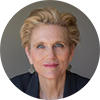Download PDF

Medicine is one of the few careers where the path is well defined. From the moment a student decides to pursue an MD, the steps are fairly clear, from the required college curriculum to the MCAT, boards, internship, residency, perhaps a fellowship, state licensure, and even more boards. But really, it’s the first job that launches a physician’s career—and that’s when the next steps can be a little murky.
In recent years, there has been an effort to teach residents and fellows about the business of medicine. But what career advice can we offer our young academicians at university ophthalmology departments?
Joseph Panarelli, associate professor and chief of the Glaucoma Division at NYU Langone Health, pointed out that training is not over after residency and fellowship. “You might say that the first academic appointment is just the beginning. Though it is a huge relief to finally be officially done, you will continue to learn from new mentors, colleagues, students, and even your technicians.”
One of the first steps is to get to know the academic team. Janice Law, an assistant professor at Vanderbilt University Medical Center who specializes in vitreoretinal surgery, recommends setting up a 15-minute meeting with every faculty member in the department, even when staying on after training. “Introduce yourself and share your academic interests, and then ask how they got acclimated to the culture.” She pointed out that these interviews can help identify which senior faculty member might serve as a mentor.
Joe and Janice both emphasized the value of mentors and advocates for academic development. As Joe said, “I would be nowhere without the support of mentors, especially Paul Sidoti and Steve Gedde.” The chair at Vanderbilt, Paul Sternberg, assigns a mentoring committee to help guide a new faculty member. But if such a process doesn’t exist, Janice suggested creating your own. “It’s good to choose mentors both within and outside of your academic department.”
Advocates and mentors also provide opportunities for career advancement. For instance, Joe was invited to give a talk at last year’s American Glaucoma Society meeting in front of 1,000 of his peers. He pointed out that “this did not happen by chance. It started when one of my mentors suggested that I give a talk locally, then put me on the program for a regional meeting, and then at a national meeting.” Janice wholeheartedly agreed. “I attribute a lot of my personal and professional growth to my advocates: Paul Sternberg, Laura Wayman, and Rob Melendez. They have been instrumental in opening doors, handing me challenging and rewarding opportunities, and promoting me for roles in the Academy and other organizations.”
Because there isn’t a clear-cut path to academic success, how does a young academician set goals? Janice recommended establishing both short- and longer-term goals, which she makes into a “contract” with her mentoring committee members. She revisits her goals about every six months to be sure the assignments she’s accepting align with her values and objectives. In contrast, Joe prefers to “focus on shorter-term goals and let the rest take care of itself.” His philosophy is that a career path can take a new direction that is even more beneficial than the original plan.
The most striking advice from both Joe and Janice involves the twin attributes of confidence and humility. Janice recommended preparing a “30-second elevator pitch,” so when a high-profile leader asks how things are going, “You can deliver a short, polished report about your recent accomplishments, your research, or how your work is valuable to the organization.” But while “self-promotion is not a bad thing,” as Janice said, humility is equally important. Academics (and all ophthalmologists) commit to a lifetime of learning, and learning requires humility. Janice’s desire to continue learning from more senior ophthalmologists and then to pass this knowledge on to the next generation is what guided her into an academic career.
There’s no question that each career is a little different. But all young academicians need guidance, opportunity, and goals. Fortunately, the resources are readily available.